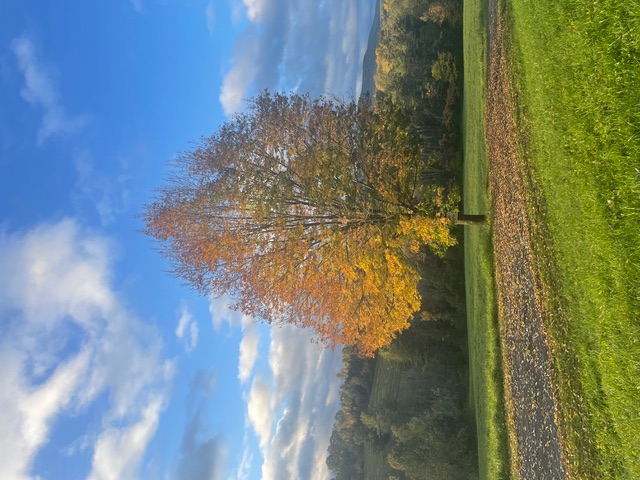
Autumn
autumn
time for release
and the leaves surrender
why can’t I
let go like them
why the delay
the unnecessary holding on
the resistance to the arrival
of Life’s Autumns
-Yolanda Koumidou
What is inner peace? Often, we describe feeling the sensation of “inner peace” after we get something we want. Our life seems to flow in the direction we planned, and everything seems to be going our way. However, that could not be further from the actual definition of inner peace.
Inner peace involves letting go and being able to maintain a state of acceptance, calm and detachment no matter what is happening or not happening around us. It is the best place to be and the most difficult place to get to. Why is that?
Reaching inner peace begins by shedding four key habit patterns that most of us accumulate, unaware of how their ripple effects disturb our mental well-being. These unhelpful habits are the propensities to complain, backbite, carry pride and judge.
Complaining is a refusal to accept what has been placed in front of us and the ever-powerful tendency to blame someone or something else. It has to do with absolute focus on what we want, as well as how and when we want it. When we do not get what we want, which can range from the most minute to the most grandiose wish, we often turn to complaining. Unfortunately, we fail to notice how much energy is involved in complaining. It is exhausting. Besides, mere complaining never changes any situation. Repeating what didn’t go our way only adds stress energetically, physically, and psychologically, and drives us away from any chance of experiencing inner peace. Not rehashing the situation and taking action to change it are the only pathways to relieving this sort of stress.
Backbiting, or speaking ill of someone behind their back, is the highest state of wasted energy. It is draining because by talking badly about someone, we end up absorbing the negativity we speak about. After we finish putting someone down, if we notice closely and are honest with ourselves, we end up with two distinct sensations: first, we just created an adverse atmosphere around us. Secondly, we are left with a false sense of superiority and self-righteousness which, of course, tends to pump up our ego. However, it is not possible to experience inner peace when the ego is inflated.
Pride is the result when the ego is inflated. Pride is different from self-confidence. Confidence is a solid belief in yourself for an accomplishment, a skill, or ability without thinking that this makes you better than another person. It is simply owning that ability, feeling good and competent without comparing yourself to someone else or putting them down for being less. Pride involves comparing and declaring yourself better than someone else, which requires you to keep putting energy and effort into staying on top. This need to stay on top is what disturbs inner peace. Trying to do your best for the sake of doing your best, and not for the sake of beating someone else, invites, and even accentuates, inner peace – since you are only competing with yourself. This can be seen as a form of meditation since you keep focusing only on one thing: to do better than you did before.
Judging is another habit that robs us of inner peace. No one can escape judging others. Whatever we judge represents parts of ourselves that we still carry but, for various reasons, had to suppress. Yet, these parts we disowned hold helpful gifts. For example, if we judge selfishness, we might be a person who tends to pay attention to what others need and how to make others happy. This often interferes with identifying and fulfilling our own needs. It requires some dose of selfishness to notice what we need. Our judgments are opportunities to become aware of and access parts of our personality that we have buried, and to begin integrating theme into our life. Often, the parts we buried carry aspects that can help us. This opens the door to inner peace since integration dissipates the toxicity of judgement and contributes to our inner expansion.
Shedding the habit patterns of complaining, backbiting, pride, and judgement takes lifelong conscious and continuous effort. In the beginning stages, we may experience a sense of loss since these habits reached the point of becoming our “companions.” However, gradually the sense of a lighter existence will begin to emerge, bringing us closer to that highly-coveted – yet frequently misunderstood – state of inner peace.
Good Journeying,
yolanda koumidou

